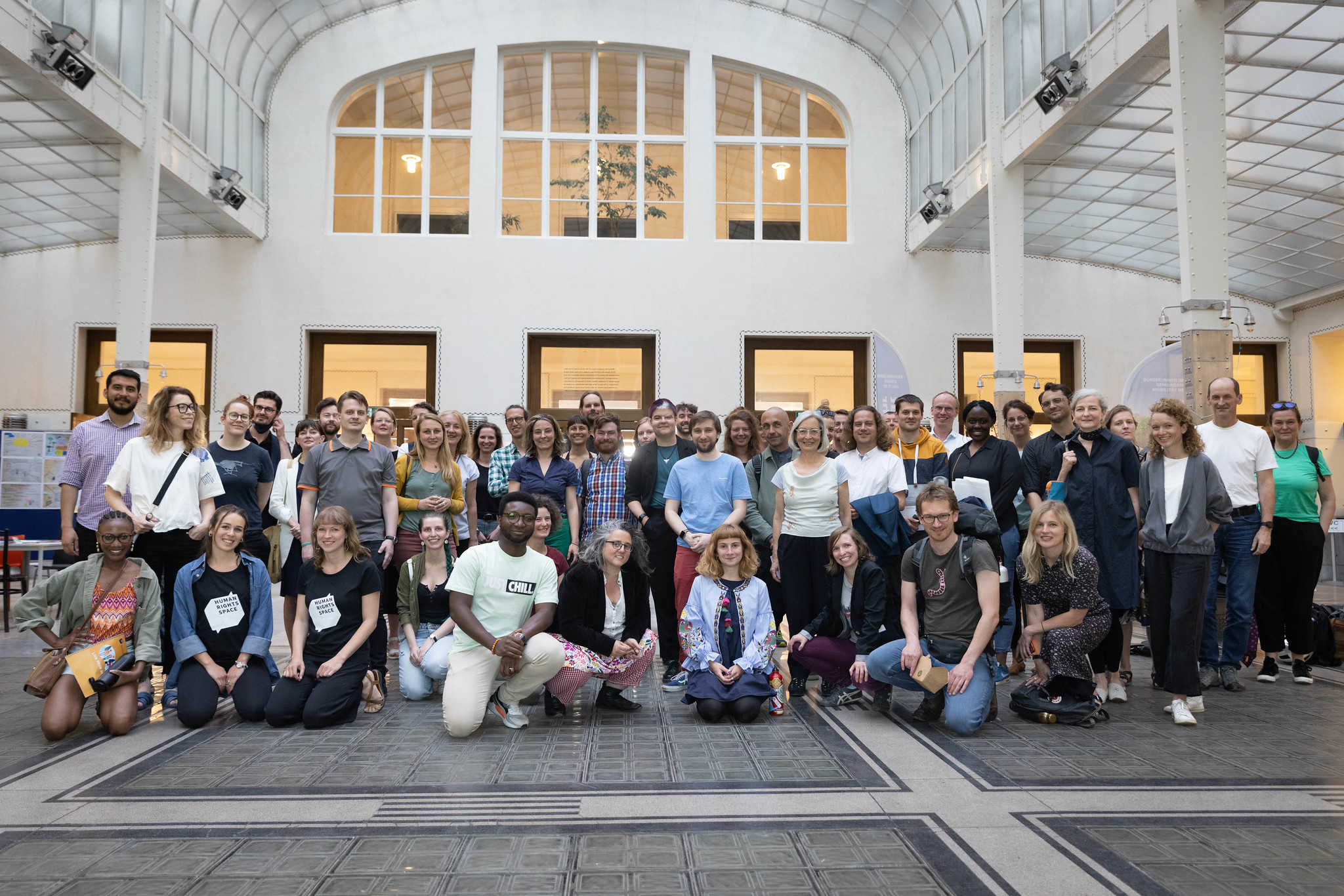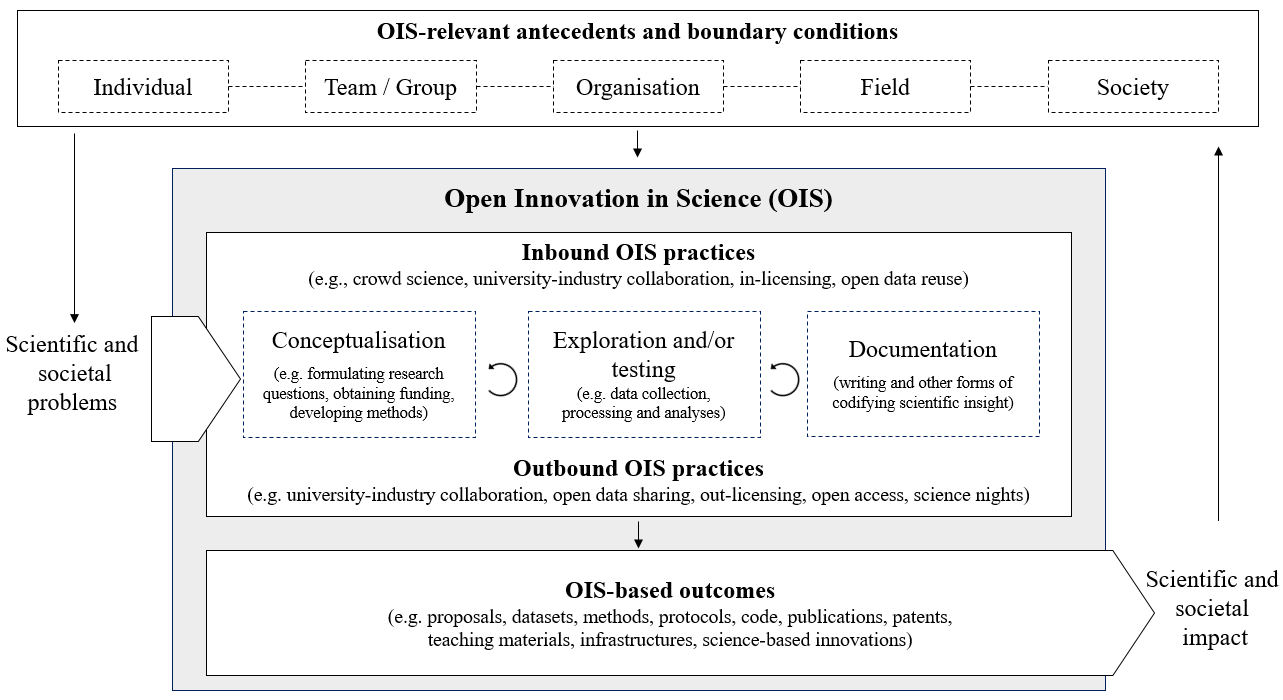Open Innovation in Science
The LBG OIS Center
The Open Innovation in Science Center of the Ludwig Boltzmann Gesellschaft (LBG OIS Center) was founded in 2016 with funding from the Austrian National Foundation for Research, Technology and Development and is an important component of Austria’s official Open Innovation Strategy.
The LBG OIS Center conducts research on Open Innovation in Science (OIS), develops Open Innovation in Science methods and offers training and consulting for the scientific community. In its research activities, the LBG OIS Center team investigates whether, how, and under what conditions the application of open and collaborative practices along one or more phases of the scientific research process influence the processes and outcomes of scientific research in terms of novelty, efficiency, and/or impact.
The effectiveness of OIS is thereby examined in relation to individual, organizational, and ecosystem-level antecedents and boundary conditions. Ongoing OIS research projects deal, for example, with the analysis of the potential of crowdsourcing in the context of scientific research, investigate how individual characteristics and attitudes affect inter- and transdisciplinary research collaborations, or explore how institutional frameworks and organizational designs of research institutions influence the application of open and collaborative research practices. The development of a scientific community around research on OIS is supported by international research collaborations and the annual OIS Research Conference.
In its implementation and training activities, the LBG OIS Center team develops a variety of new OIS projects, coordinates them and implements them in cooperation with various partner organizations within and outside the LBG. Example projects that have already been completed include crowd science projects in the area of child and adolescent mental health or accidents related injuries to generate input for a new scientific research group, the development of a comprehensive database of priority setting projects conducted worldwide, a Patient and Public Involvement guide and a program to fund projects where research is carried out “with” patients and affected persons and not “on” or “about”, an impact model based on a Theory of Change to evaluate the impact of open and collaborative research projects, and the Open Arts training program for sustainable capacity building in participatory research methods in the arts, research and science.
OIS Research and OIS Implementation work closely together in various constellations to facilitate mutual learning and jointly contribute to the critical discussion around the role and value of openness and collaboration in scientific research.
What is Open Innovation in Science (OIS)?
Open Innovation in Science (OIS) itself is defined as a process of purposively enabling, initiating and implementing inbound, outbound or coupled knowledge flows and (inter/transdisciplinary) collaborations along one or more stages of the scientific research process (Beck et al. 2020).
An important aspect in the conceptualization of OIS (see Fig. 1) refers to the fact that opening up research processes does not serve an end in itself. Rather, the application of OIS, under certain conditions and in coordination with the respective scientific challenge, enables benefits for science (e.g., novel insights, more efficient processes, higher impact) as well as for society (directing research towards societally relevant topics, closing the gap between science and society).

